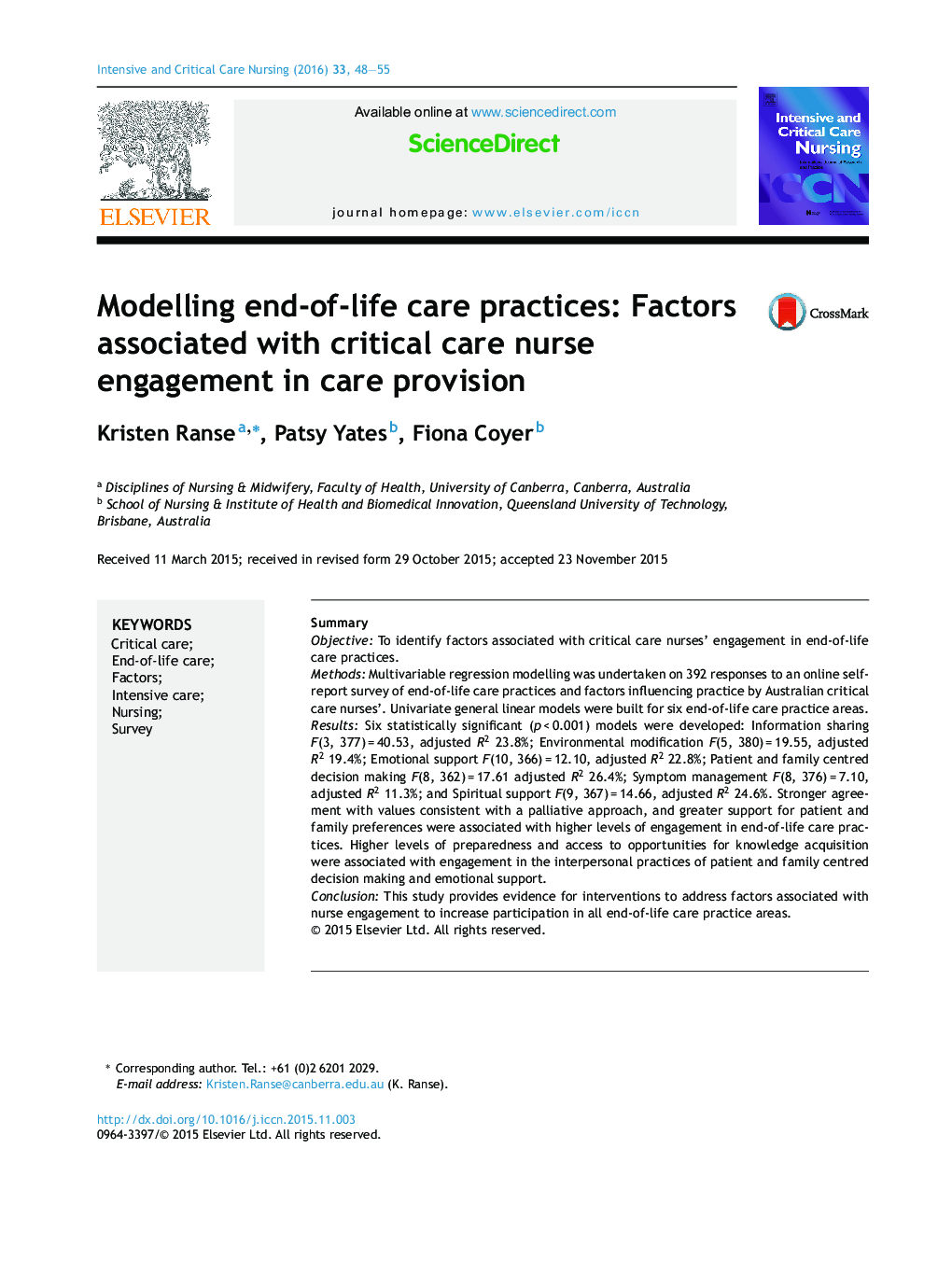| Article ID | Journal | Published Year | Pages | File Type |
|---|---|---|---|---|
| 2652088 | Intensive and Critical Care Nursing | 2016 | 8 Pages |
SummaryObjectiveTo identify factors associated with critical care nurses’ engagement in end-of-life care practices.MethodsMultivariable regression modelling was undertaken on 392 responses to an online self-report survey of end-of-life care practices and factors influencing practice by Australian critical care nurses’. Univariate general linear models were built for six end-of-life care practice areas.ResultsSix statistically significant (p < 0.001) models were developed: Information sharing F(3, 377) = 40.53, adjusted R2 23.8%; Environmental modification F(5, 380) = 19.55, adjusted R2 19.4%; Emotional support F(10, 366) = 12.10, adjusted R2 22.8%; Patient and family centred decision making F(8, 362) = 17.61 adjusted R2 26.4%; Symptom management F(8, 376) = 7.10, adjusted R2 11.3%; and Spiritual support F(9, 367) = 14.66, adjusted R2 24.6%. Stronger agreement with values consistent with a palliative approach, and greater support for patient and family preferences were associated with higher levels of engagement in end-of-life care practices. Higher levels of preparedness and access to opportunities for knowledge acquisition were associated with engagement in the interpersonal practices of patient and family centred decision making and emotional support.ConclusionThis study provides evidence for interventions to address factors associated with nurse engagement to increase participation in all end-of-life care practice areas.
